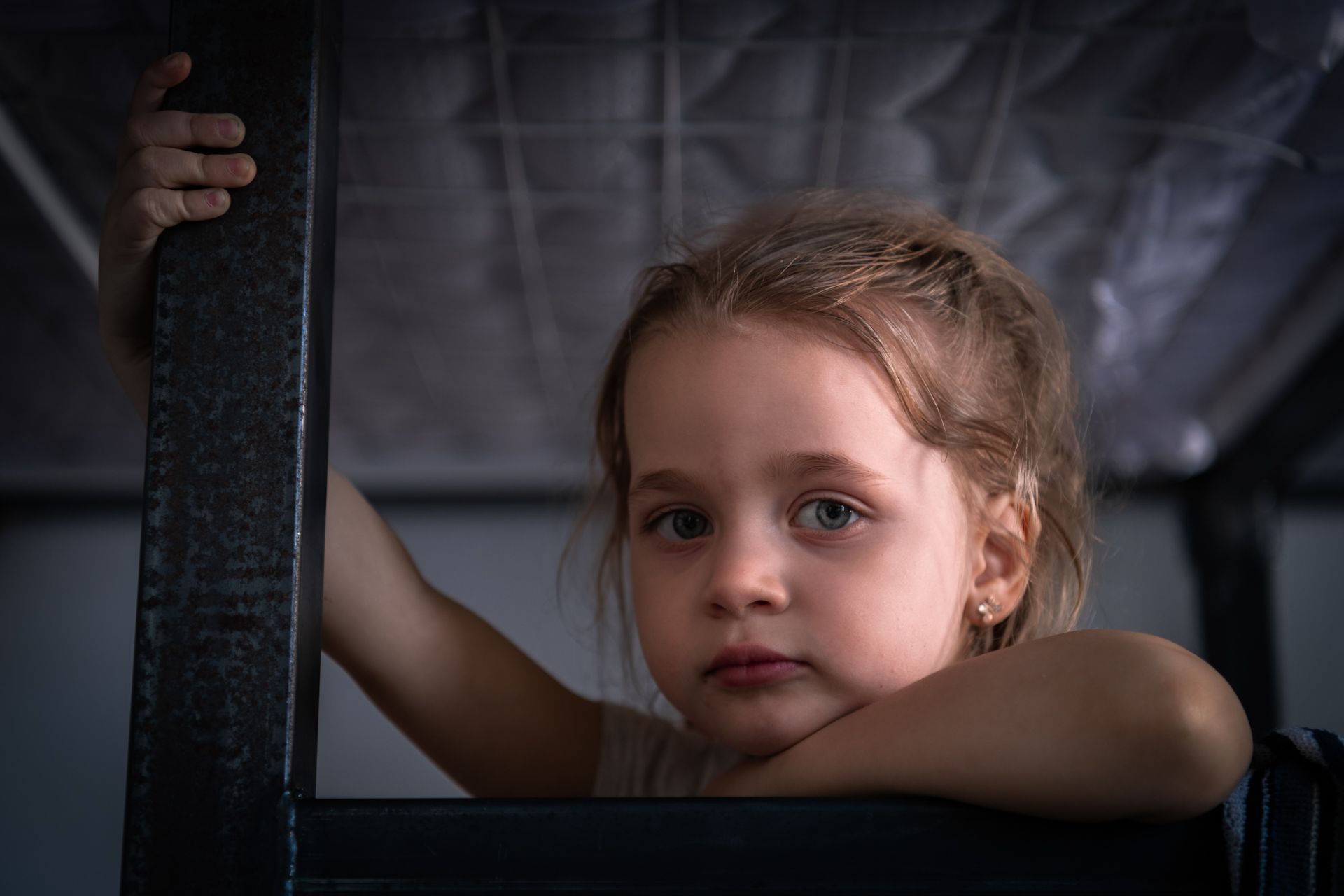Mariya (31), Kiril (10), Maryana (3)
April 21, 2022, Bratislava. Day 56 of the war.
Her small daughter shows me a photo of her father on the phone. She misses him. She hadn't seen him in a month. She plays around us while her mom tells me her story. Her sister lives in the Crimea. When they talk on the phone, the war is not being discussed over the concerns of her sister's security. The one who had to flee home because of the war is worried about her sister, who lives in the country of her occupier.
"We had to flee our home because the war started. We left the whole family at home and ran away to save our children. We live in the suburbs of Kharkiv, where the situation may not have been as bad as in the city, but it was certainly not a suitable place for the children. We hope that the war will end soon so that we can return home and meet those we have left there. Even if we have nowhere to go, we will return and build our home again."
"It is terrible that there are people who do not believe that there is a war in Ukraine. Fortunately, others understand what is happening and help us. In the eastern part of the country, in Donetsk and Luhansk, you can hear people saying that if they managed to withstand the war, we must too. We will only be well if we are all together again, our whole family."
"We left on March 26, a day later we crossed the border in Uzhhorod. When we left, the situation in the city was relatively calm, but it began to deteriorate on the outskirts and in the surrounding villages and towns. We left in a larger group, 4 cars large. Helicopters were flying over our heads, firing at enemy positions. If you want to leave Kharkiv, you only have to go by car or bus, because the trains between the suburbs are running no more. I came here with the people who have become our family for the moment. Mom, brother and son-in-law stayed there. They are in an area under Russian control, therefore they cannot go west. They could only go to Russia, but they do not want to go there, they are afraid. When I called them, they told me they are lacking food. They were promised humanitarian aid, but they have not received anything yet. If they want to go to the store, they must have a permit. My husband also stayed in Ukraine, but I can't say what he's doing."
"My sister lives in the Russian-controlled area of the Crimea since before the war. She calls us, she asks how we are, she is worried about us. She lives with her husbands' family there and they do not believe that there is a war happening in our country. That's why she argues with them and tries to explain to them what she heard from us. However, they do not want to believe that Putin could attack civilians. Now when we're on the phone, she just asks me how I'm doing, we can't talk about the war because the calls are often intercepted and I don't want her to have a problem. My sister is often very straightforward when she speaks. I had to beg her not to talk to me about these things. We only talk about everyday things together. I am in contact with the rest of the family only when they can find a signal somewhere on the high ground. Then I will receive an SMS from them saying that everything is fine, and that will calm me down."
"Kharkiv is only 40 km from the Russian border, fortunately we lived further away, on the other side of town. Everybody is alive, just the food is a problem, they only have durable foods such as rice, groats, flour. They promised them to open a store soon, but those are just promises. My brother is a recruit, but he did not go to fight. When I see what's going on, that they bomb schools, I'm happy he doesn't fight. And I hope he won't have to to fight. It is terrible to think that we live here in peace and that they are experiencing this tremendous fear every day. There are so many other families and children, it's awful!"
"A policewoman named Jana was helping us a lot at the borders, we are extremely grateful to her. We had a toddler with us, so she swiftly helped us with accommodation in a monastery. Everyone cried and told us that we could return with our families when we were leaving. Then we went to Zilina, where we lived for about a week, from where we came to Bratislava."
"The war gave us a new family which we came here with. We have lived together in a basement since the beginning of the war. There were 13 of us, we cooked our meals in one pot, took care of the children, we became very close. We left together. It would probably not be possible today, because the Russians, as we have heard, are confiscating cars in the occupied territories."

 SK
SK  UA
UA  EN
EN  RU
RU 